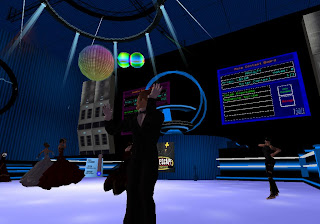It is amazing how time and distance provide sanity in the wake of a heated conversation or passionate comment. Clarity, I've found, is almost always gained in retrospect instead of in the moment. I don't know if that is always true for everyone, but that seems to be the case for me.
Online evaluations are tabulated and in from the November Missouri District Educator's Conference, and it was after reading the comment section that I realized I have developed a pretty short fuse when it comes to personal feedback that I don't agree with.
That was just over a week ago and thankfully I decided to practice what I preach and not post anything while frustrated. Time truly does provide clarity for me, and I think that I just need a little time to process things before I respond.
The area I was most interested in was the virtual presentation on Tuesday morning by Will Richardson. I will not go into details with regards to the half a dozen specific comments, but I would like to share the one comment that garnered the "Did you just really say that out-loud" award:
"I know that going outside of our own "circles" shows a willingness to learn from others...but Will Richardson wasn't just provacative...he insulted much of who we are and what we do. Learning based on "passion"...peer validation...virtual face-to-face over and above the dinosaur in the corner (real life teacher)...my blood was boiling."
I'm not really sure if anything else needs to be said at this point, other than I really pray that this was not what was going through the heads of the majority of teachers last November during the keynote. The comments about a glitchy connection, and wanting to have someone live, or the frustration about fellow teachers not honoring the time by talking over the PA, were warranted, but the above comment is by NO MEANS acceptable (pun intended, the conference theme was "By All Means").
Obviously the person who left that comment wasn't listening. The presentation, more than anything else, wasn't as much about teachers as it was students. If the commenter would have been paying attention, Will's comments were about the shift in our information and media culture and the need for teacher's to examine their practice in light of these changes. And that was the whole reason for his talk. We need to start having this conversation and it's fascinating to me that there are a core group of people who don't want to have it!
William Bennett and his coauthors in his book "The Educated Child" commented about public schools, but I think it could also be said of parochial schools as well:
"The public school establishment is one of the most stubbornly intransigent forces on the planet. It is full of people and organizations dedicated to protecting established programs and keeping things just the way they are. Administrators talk of reform even as they are circling the wagons to fend off change, or preparing to outflank your innovation...."I'm not exactly sure what Lutheran school teachers are trying to "protect" by not engaging in educational change conversations. Many Lutheran schools are or will die as they refuse to engage the world around them.
The main driving force behind educational change today in America as I see it is the educational technology community. It is through the pedagogically appropriate use technology that teaching learning to students begins to take flight. For in the use of technology, teachers finally have the tools to truly differentiate instruction. It is through the use of technology that teachers can utilize the passions of students to help students learn to be problems solvers and critical thinkers. It is through the medium of the Internet that students can now become world class researchers. So why don't more embrace it?
There are some theories, but in the end I think it's about teachers not doing what is right for students because they are just too afraid to engage the world around them. They hide behind statements about Internet safety and appropriateness. Don't get me wrong, there is plenty of bad stuff out there. We don't call the world wide web "The Wild West" for nothing. But when we don't engage this younger generation in this information, media landscape that they are born into, ignorance will only breed more ignorance, and comments like the one above will continue to permeate the public debate about technology and learning in this century and the next.
image: "June 19th, 2009". Flickr user: crookedteethhh .
image: "June 19th, 2009". Flickr user: crookedteethhh .

